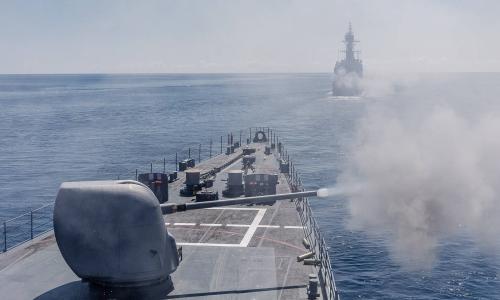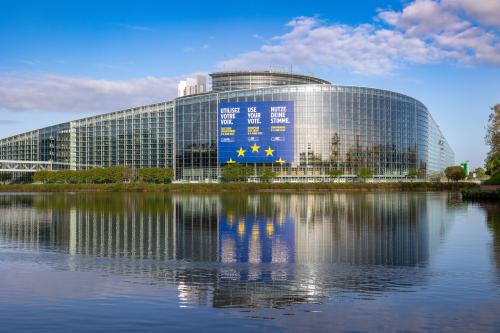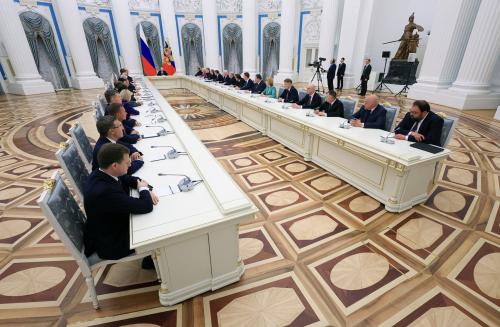The deeply regrettable death of the Chechen leader Aslan Maskhadov at the hands of Russian forces means that the Kremlin no longer has an alibi for its failure to pursue a political process in Chechnya. Moscow always claimed in public that Maskhadov was simply a terrorist with whom Russia could not be expected to deal. Now he is dead, and it is up to the Russian government to show that it is committed to a legitimate political process in Chechnya.
In private, Russian officials would sometimes use a different argument: that when he was president of Chechnya between 1997 and 1999, Maskhadov wholly failed to prevent an explosion of Islamist extremism and criminality. In recent years, the Russians said, Maskhadov did not actually control most of the forces fighting against Russia. He denounced terrorist attacks, like the assault on the school in Beslan last September, but he obviously failed to prevent them. The international demand for Russian talks with Maskhadov, therefore, could not possibly lead to a peaceful solution.
This private Russian argument is more truthful. Besides, talk of a “political solution” to the conflict in Chechnya was often misleading. Moscow could and should have conducted a dialogue with Maskhadov and his supporters, but this would not have led radicals like Shamil Basayev to lay down their arms. After all, when Russia withdrew from Chechnya in 1996 and accorded it a considerable measure of de facto independence, Basayev and his allies simply transformed their fight into one to drive Russia from the whole North Caucasus.
Instead of a political solution in Chechnya, friends of Chechnya, and of Russia, should be thinking in terms of a political process, into which more and more Chechens can gradually be drawn.
This is essential because the Chechen tragedy of the past decade and a half has always had two crucial elements. The first has been the criminal errors of successive Russian governments and the abominable behavior of Russian troops towards the Chechen civilian population.
The second, however, has been the inability of the Chechens to develop the basic structures of an effective state and a modern civil society. Unlike the Irish or Tamil nationalists, Chechens have not created a mass political-nationalist party or an effective political-military movement. That has allowed Chechnya to fall under the sway of a mixture of criminal and extremist forces.
The struggle to isolate terrorists in Chechnya is, therefore, intimately linked to the question of how to develop Chechnya as a society and political economy—a process that will take decades.
In the meantime, security and governance in Chechnya will have to be secured by outside forces. There is no reason why Chechens should not make full independence their ultimate goal. But they, and their friends in the West, need to recognize that premature independence proved as disastrous for Chechnya in the 1990s as it did for many former colonies in Africa and elsewhere.
The successful exercise of independence, as in India, usually depends on a long process of political mobilization and socioeconomic development. In principle, the Russian government has based its own political strategy in Chechnya on precisely this belief. Vladimir Putin’s policy of “Chechenization” is intended to create a Chechen society that will govern itself as an autonomous republic of the Russian Federation.
In practice, however, the Russian approach has been disastrously flawed. Creating a working Chechen autonomy depends on integrating the maximum number of Chechens into political society and gaining the maximum number of Chechen allies against the extremists. This in turn requires a genuinely democratic political process.
Instead, the Russian government has created a system involving farcical presidential “elections” in which even most of Russia’s own allies are barred from running and Russia determines the winner in advance. Russia’s reliance on the “Kadyrovtsy,” the group loyal to the assassinated former President Ahmed Kadyrov and his son Ramzan, has encouraged that group to become a deeply criminalized force which only creates more enemies for Russia.
Moscow has now promised parliamentary elections in Chechnya. If democratically conducted, these could create a genuine space where a range of different Chechen forces and voices could speak out, negotiate with each other and combine to form a government and new political base. If this does occur, the West should recognize these elections and offer support to the resulting system.
But for there to be any chance of this, the West will need to combine engagement with considerable pressure on Moscow to live up to its commitments in Chechnya. With Aslan Maskhadov gone, Moscow no longer has an excuse not to.



Commentary
Op-edNow Let the Chechens Select Their Leaders: Chechnya After Maskhadov
March 12, 2005